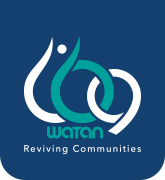Reporting to the Project Manager, the Food Security and Livelihood (FSL) Officer is responsible for the daily planning, implementation, supervision, monitoring, and reporting of food security and livelihoods activities. S/he will ensure proper coordination with stakeholders and work from Gaziantep on Food Security and Livelihoods in NWS. Additionally, S/he will be part of the team responsible for preparing new project proposals and implementing current activities.
- About us
- Expertise
- News
- Watan Network
- Campaigns
- Vacancies
- Tenders
- Contacts
-
FSL Project Officer
Job Summary
Position Requirements
- Background in the humanitarian context and has been working with NGOs for three years at least.
- Good experience in implementing livestock projects (Vaccination, Artificial insemination, livestock value chain is preferable)
- The agriculture engineering and veterinarian candidates are preferable.
The needed qualifications:
Responsibility
1- Develop project plans that outline the objectives, scope, timeline, and budget for initiatives related to food security and agriculture.
2- Collaborate with government agencies, local communities, farmers, NGOs, and other stakeholders to ensure project buy-in and successful implementation.
3- Conduct assessments to identify the specific needs and challenges related to food security in a given area.
4- Design and develop programs that address identified needs, such as crop improvement, livestock management, irrigation, and sustainable farming practices.
5- Monitor and manage project budgets to ensure that resources are allocated efficiently.
6- Acquire necessary resources, such as seeds, fertilizers, equipment, and infrastructure, to support project goals.
7- Organize training sessions and workshops for farmers and local communities to build their capacity in modern and sustainable agricultural practices.
8- Implement systems for tracking project progress and evaluating its impact on food security in the targeted areas.
9- Prepare regular reports and communicate project updates and outcomes to donors, partners, The FSL cluster, and ERL cluster and stakeholders.
10- Promote environmentally sustainable practices and technologies to ensure long-term agricultural resilience and food security.
11- Identify potential risks and challenges related to the project and develop strategies to mitigate them.
12- Work closely with local communities to involve them in project activities, address their concerns, and ensure their participation.
13- Collaborate with other organizations, clusters and agencies working in the same field to leverage resources and expertise.

